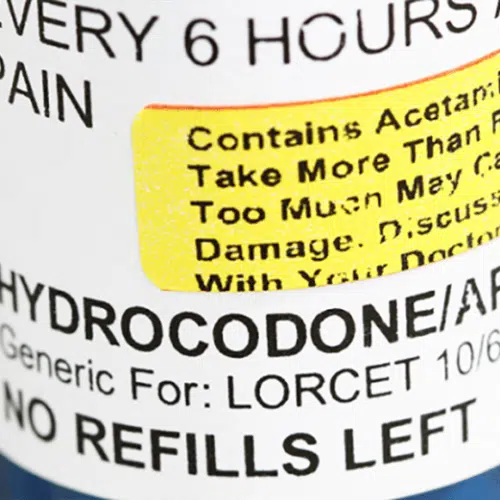American Association Of Neurology State Cannabis Is Effective Treatment For MS Symptoms
Multiple Sclerosis And Marijuana Study From Colorado State University- An estimated 400,000 Americans are currently living with multiple sclerosis. MS is an autoimmune disease where the body’s immune cells attack myelin in the nerves. The symptoms of MS can vary, but common symptoms are gait and balance disorders, cognitive dysfunction, fatigue, pain and muscle spasticity.
Colorado has the highest proportion of people living with MS in the United States.
In Colorado, an estimated one in 550 people have MS. Nationally the average is one in 750. The reason for the higher percentage per populace is unknown, it could be related to vitamin D deficiency or environment.
Based on several studies, the American Association of Neurology states that there is strong evidence that cannabis is effective for treatment of pain and spasticity.
There is a plethora of anecdotal reports stating cannabis’ beneficial effects on the symptoms of MS, including; fatigue, muscle weakness, anxiety and sleep deprivation. Because of cannabis’ Schedule one status in the United States, these claims have not been tested through a clinical trial.
From the Integrative Neurophysiology Laboratory
“To learn more, my Integrative Neurophysiology Laboratory at Colorado State University is studying people with MS in the state who are already using medical cannabis as a treatment to investigate what MS symptoms the drug can effectively treat.
The main reason for the limited scientific evidence about how well cannabis can treat MS symptoms is because it is a Schedule 1 substance. This means that it has “no currently accepted medical use and a high potential for abuse.” This classification makes it very difficult to study cannabis in clinical trials.
Because cannabis is on Schedule 1, doctors can’t prescribe it, even in the states with medical marijuana laws, like Colorado. In those states doctors can provide patients with a “permission slip” for cannabis, which has to be approved by a state agancy.
My lab’s long-term goal is to determine whether cannabis can safely and effectively treat MS symptoms. But because of current federal regulations our lab can conduct only observational studies at this time. To conduct clinical trials with a Schedule 1 substance, investigators must have a special license, which my lab is in the process of applying for. At the moment, this means we study only people who are or are about to use cannabis and we do not provide cannabis to anyone for our studies.
We recently completed an online survey of 139 MS patients currently using cannabis to learn what types of products they used, how often they used those products and for how long.
Our results, which have not yet been published, found that 91 of our respondents (66 percent) reported that they currently use cannabis, and 56 percent of the cannabis users reported using either smoked or edible products. Seventy-eight percent of the cannabis users also indicated that they reduced or even stopped other medications as a result of their cannabis use.
The survey respondents who are using cannabis reported lower disability scores on the Guy’s Neurological Disability Scale, a clinical scale used to evaluate neurological disability in people with MS, and they seem less likely to be obese. However, these data are self-reported, which means objective longer clinical trials are required to confirm these results.
We are also conducting an ongoing observational study, set to be completed in mid-2017, on the effects of regular cannabis use on physical function and activity levels in people with MS. There are many studies on the influence of cannabis on cognitive function in healthy and diseased populations. However, no study to date has used objective measures of motor function in people with MS who are using cannabis, such as muscle strength and fatigue tasks, walking performance and postural stability tests.
Our preliminary results indicate that people with MS using cannabis have greater physical activity levels, leg strength and walking speed, while also having less spasticity, fatigue and a lower perceived risk of falling. It is of note that these individuals are rarely using only cannabis to help control their symptoms. They are often using cannabis alongside traditional medications.
Importantly, cannabis users did not perform worse than nonusers on any of our measurements. These are very promising results, and we are expecting significant positive effects of cannabis at the end of this observational study.
Randomized control trials are needed
The outcomes of these observational studies will be the foundation for larger randomized clinical trials, where some patients are treated with cannabis and others aren’t. These types are studies are needed to truly show the benefits and risks of consequences of cannabis use in this population.
Applying for the special license that investigators must have to conduct clinical research with a Schedule 1 substance is a lengthy process. Once granted, the DEA requires on-site inspections of the investigator’s facilities. Furthermore, it is also very difficult for these types of experiments to be approved and performed. These policies make conducting research on the medical benefits and side effects of cannabis in the United States extremely hard. As a sad result, top researchers are looking to export their ideas outside the country.
We want to conduct clinical research to understand what cannabis products MS patients should use, in what dosage and in what form of ingestion. We also want to find out whether long-term cannabis use is safe, and if the effectiveness changes over time due to increased tolerance. Fortunately, our first intervention study, which will investigate the effects of different marijuana strains on motor and cognitive function in people with MS, has been approved by the CSU Institutional Review Board. This means that my lab can begin this research once our license is approved.
and treats MS symptoms, they could help establish the medicinal value of cannabis. That could make a case for rescheduling cannabis, making it easier for physicians and researchers to establish cannabis’ true benefits and risks.”


